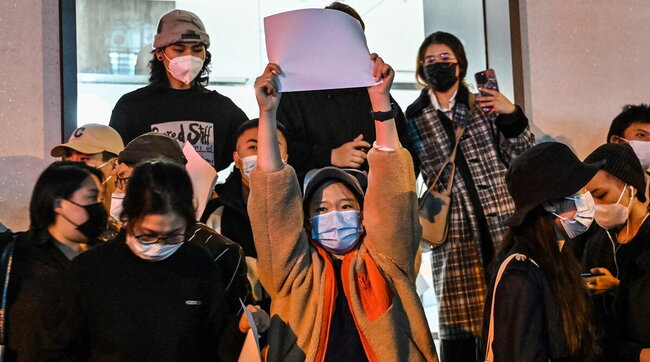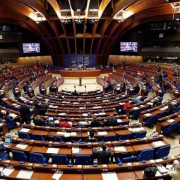
On November 29, at the 3pm biweekly press conference, China’s Foreign Ministry spokesman Zhao Lijian didn’t know what to say about the lockdown and the protests in many cities. Most likely, he wasn’t lost for words but he didn’t have relevant indications.
That is, China’s leadership didn’t know what to say or do about the contested lockdowns, a fundamental thing that had been depriving Chinese people of the basic freedom to take a stroll and to travel to another city or abroad for almost three years.
A few hours later, a practical answer was ready, although not announced in so many words. There would be fewer PCR tests, more home quarantine, more elderly vaccination, more police presence, and more internet control. Nothing conclusive per se, but together they could end the remonstrations in the short term.
The speed of decision underscores that there is no divide in the top leadership.
The day after, on November 30, ex-president Jiang Zemin passed away. He was chosen as party chief and head of state in the wake of Tiananmen.
In 1976 and in 1989, the deaths of Premier Zhou Enlai and of ex-party chief Hu Yaobang sparked two waves of protests that were eventually suppressed. But then, in both cases, the leadership was split.
In 1976, Mao was very ill and old party loyalists, like Ye Jianying and Wang Dongxing, were vying for power against the “Gang of Four.”
In 1989, Party Secretary Zhao Ziyang was with the students, Premier Li Peng was against them, and Deng Xiaoping, the paramount leader, was somewhere between.
Jiang was brought to power by the Tiananmen protests and died with the Covid protests. A cycle of 33 years ended. Now with him dead and his successor Hu Jintao apparently affected by Parkinson’s disease, there’s no major elderly leader who can coalesce opposition to President Xi Jinping.
Moreover, the Politburo is packed with his loyalists, and Xi is more powerful than ever despite whatever protesters, which means decisions can be made quickly. This, in turn, can bring another argument in favor of the concentration of power in times of need.
Beijing has thus gained some time, but long-term questions remain.
China can’t go on indefinitely with the Covid epidemic now that the Chinese population has fully realized that it has ended in the rest of the world. Beijing needs an exit strategy from Covid. What will it be, and when will it be delivered?
Also, the difference between China still battling Covid and the end of Covid out of China has created a fissure in popular trust between the government and the people. Popular trust in the government was solid in early 2020; at the onset of the epidemic, now it is apparently much weaker.
The question is how the government will fix this fissure of credibility.
After the 1989 crackdown, the government established a new social contract with the protesters: They could get rich in any way they wanted, but in return, they would not stick their noses in politics.
Now the government needs something similar after getting out of Covid. It’s not clear when China will be out of the epidemic and what it will offer to its people to regain their trust and its domestic credibility.
In the meantime, if Beijing keeps the lockdown, one billion people will grow even more fed up with the government, with or without protests. If they lift it, millions might die in the Covid wave, and millions will hate the government causing them to lose relatives. If they start a massive vaccination campaign, after saying for two years that vaccines can be dangerous to the elderly, many will not comply.
In this situation, the usual answer is to kick the can down the road, and find some partial solutions, because radical measures will not guarantee positive results. Also, if people are fed up they can be assuaged later; if they hate the government, appeasement could be harder.
Then, with these partial measures and with a lid on protests, a lingering resentment and a parallel official tension could go on for weeks or even months until spring, when warmer temperatures will make the virus recede and the government could safely stop the lockdowns.
But three or four months could be long, and many things could go wrong. Therefore, Beijing is likely to be extra careful.
In the meantime, it will be important to look at the international situation. If Russia surrenders or Iran’s ayatollahs are toppled, this could shake China’s leadership’s resolve. If Russia and Iran hold up, Beijing will have one more reason to wait and see.
China is sailing through uncharted waters, and there is no clear path ahead. In these circumstances the first practical rule could be trying not to rock the boat at least until spring.





